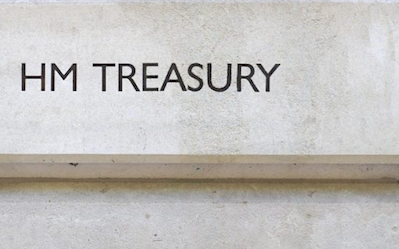UK government borrowing in the six months to September 2024 was £79.6 billion, £1.2 billion more than at the same point in the last financial year — and the third highest year-to-September borrowing since monthly records began.
The amount borrowed by the UK government in the first half of the financial year was about £6.7 billion more than the £73 billion forecast by the UK’s Office for Budget Responsibility.
The UK’s Office for National Statistics (ONS) said the UK’s public sector net debt excluding public sector banks remains at around £2.768 trillion.
The ONS said UK government borrowing — the difference between public sector spending and income — was £16.6 billion in September 2024, £2.1 billion more than in September 2023 and the third highest September borrowing since monthly records began.
The ONS said the interest payable on UK central government debt was £5.6 billion in September alone, £4.6 billion more than in September 2023.
UK public sector net debt excluding public sector banks (PSND ex) was provisionally estimated at 98.5% of gross domestic product (GDP) at the end of September 2024 — about 4 percentage points more than at the end of September 2023, and it remains at levels last seen in the early 1960s.
UK central government receipts were £80.7 billion in September 2024, while expenditure was £93.7 billion.
Alex Kerr, UK economist at Capital Economics said: “While it is too late for September’s disappointing public finances figures to influence the amount of headroom the Office for Budget Responsibility will hand the chancellor in the budget on 30 October, they do highlight the limited scope the chancellor has to increase day-to-day spending without raising taxes.
“That said, if she tweaks her fiscal rules, she will still have room to raise public investment.”
Darren Jones, Chief Secretary to the UK Treasury, said: “We have inherited a £22 billion black hole in the country’s public finances, including no plan to fund pay deals for millions of public sector workers.
“Strikes cost at least £3 billion last year, so it was the right thing to do to end those damaging disputes.
“Resolving this blackhole at the Budget next week will require difficult decisions to fix the foundations of our economy and begin delivering on the promise of change.”
